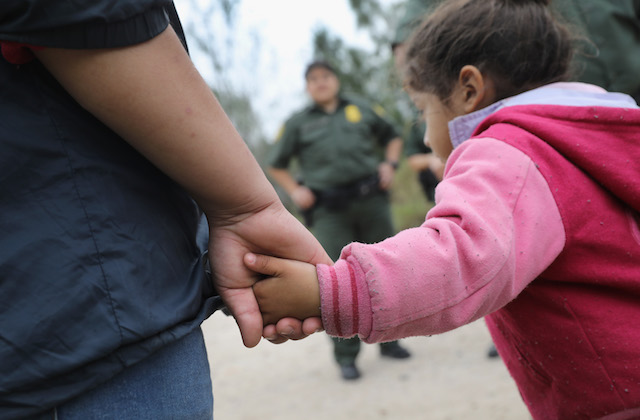On Friday (March 30), the Department of Justice (DOJ) unveiled new production quotas for immigration judges aimed at expediting deportations. The directive will require judges to clear 700 cases a year or face negative performance reviews. The announcement comes as the Trump administration weighs other measures that would speed up deportations of children arrested at the border.
The DOJ quotas, first reported by The Wall Street Journal yesterday (April 2), are billed as an effort to reduce court backlogs, and are set to take effect on October 1. Besides completing 700 cases annually—in the last five years, judges have completed an average of 678 cases a year, according to the report—judges will also be required to complete 85 percent of their cases within three days of hearing them. Another directive orders judges to see less than 15 percent of their cases returned by a higher court.
"The purpose of implementing these metrics is to encourage efficient and effective case management while preserving immigration judge discretion and due process," James McHenry, director of the DOJ’s Executive Office for Immigration Review, wrote in an email to immigration judges on Friday.
But immigration judges—and the union that represents them—expressed concern that immigration cases, which vary in complexity, will be rushed through the court system, jeopardizing judicial independence and integrity.
"This is a recipe for disaster," A. Ashley Tabaddor, president of the National Association of Immigration Judges, told the The Journal.
"We believe the imposition of numerical performance metrics is completely, utterly contrary to judicial independence," added association spokesperson Dana Leigh Marks. "We believe assessing quality is fine, not quantity."
There are more than 650,000 pending cases in immigration court, according to Syracuse University’s Transactional Records Access Clearinghouse, including over 120,000 cases in California and more than 100,000 cases in Texas, the states with the largest backlogs.
The DOJ directive comes as Trump administration officials mull other measures to hasten deportations. They include ending protections against the immediate deportation of unaccompanied children arrested at the border. Under current law, children detained at the border cannot be placed in expedited removal proceedings and are instead placed in custody of Health and Human Services. Another measure would rescind the requirement that the federal government release children from custody to either parents or adult relatives as their cases develop through immigration court.
The recent Trump administration announcements follow a multi-pronged attack on the country’s immigration system. Over the weekend, the president attacked Mexico for allowing "caravans" of Honduran immigrants to trek toward the U.S. border. He also falsely claimed that the Central American migrants were trying to benefit from DACA, the program that protects young immigrants brought to the U.S. as children. Applicants must have arrived in the U.S. before their 16th birthday and have lived in the country continuously since June 15, 2007.
Last week, Trump decided to not extend deportation protections to some 4,000 Liberians living in the U.S. who had benefited from humanitarian assistance since 1999. That decision was preceded by a Department of Commerce announcement that the 2020 Census will include a controversial question about citizenship status, a move critics say will result in a severe undercount of the U.S. population and jeopardize billions of dollars in annual federal funding.
In March, the DOJ sued California’s governor and attorney general for implementing laws that grant protections to immigrants and limit cooperation between state officials and federal immigration agents.
